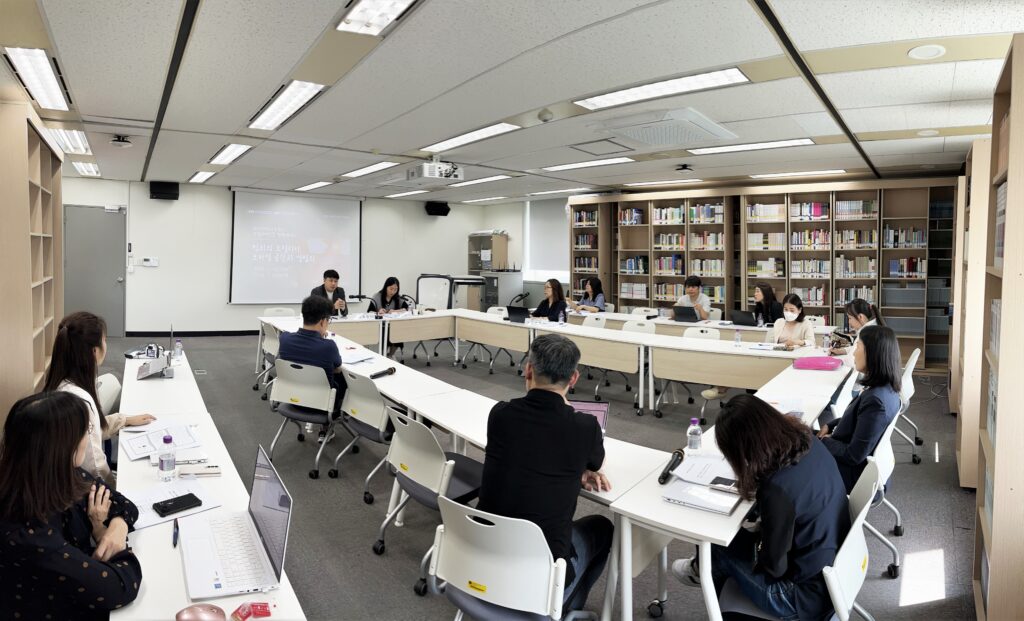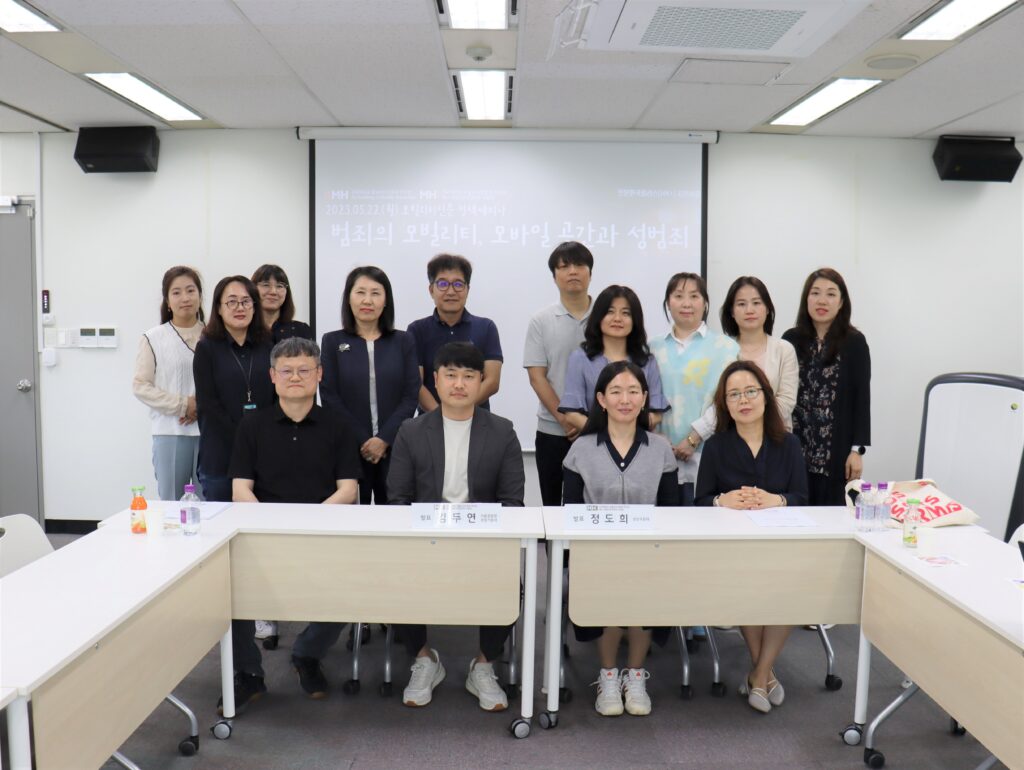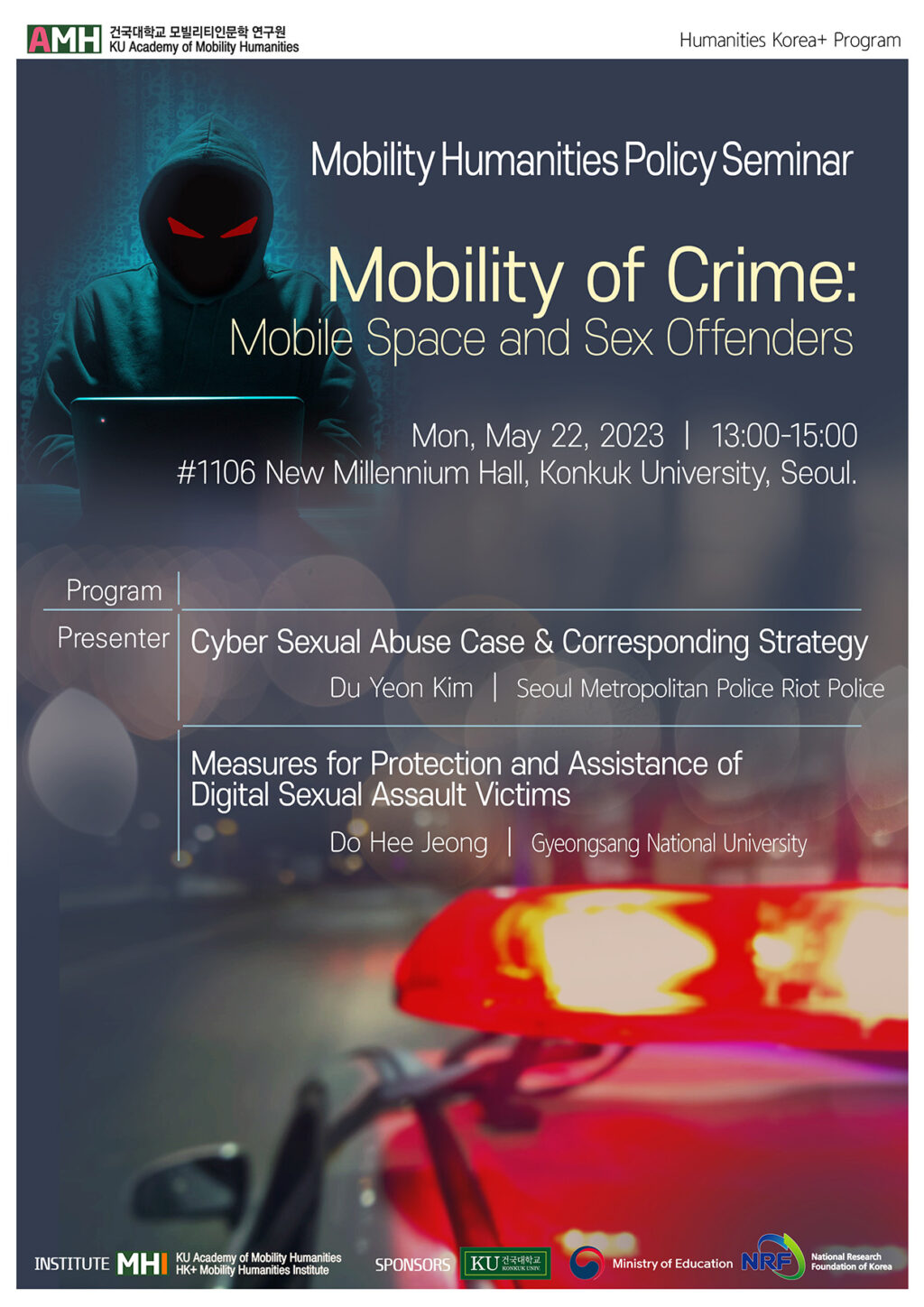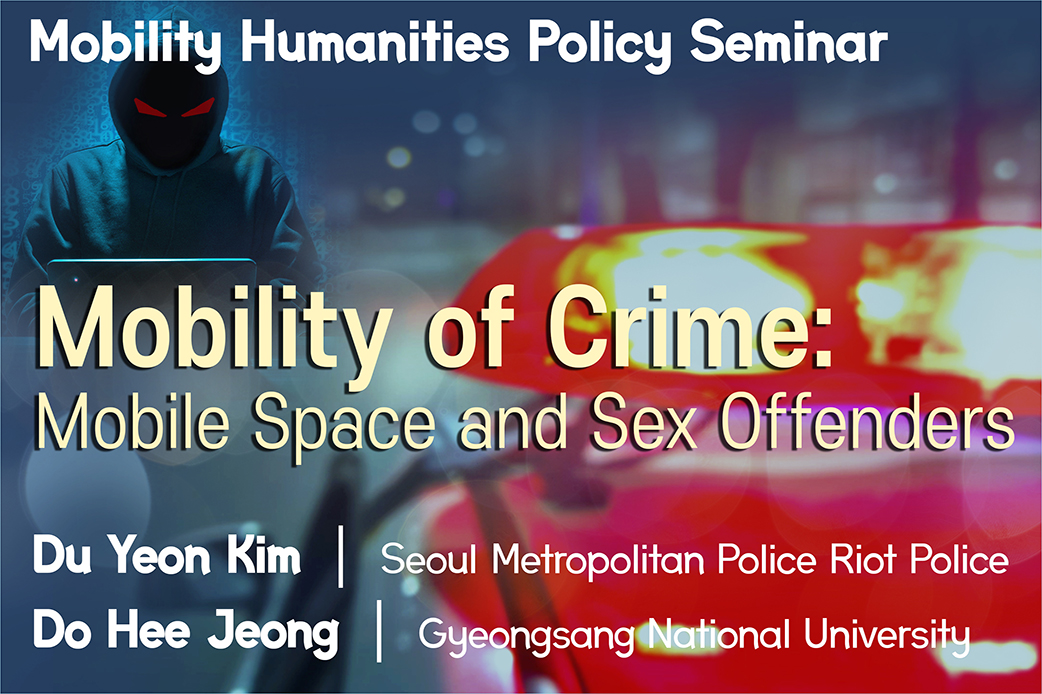In the era of Industry 4.0, digital space expands as a new mobility space. To explore policies for sexual crimes in the digital area, the Academy of Mobility Humanities held a Mobility Humanities Policy Seminar under the theme of “Mobility of Crime: Mobile Space and Sex Offenders.”

In this policy seminar, Lieutenant Duyeon Kim (Seoul Metropolitan Police Riot Police) and Professor Dohee Jeong (Gyeongsang National University) examined the types and actual cases of cybersex crimes in the mobile space and introduced the need to strengthen protection and support for the victims of digital sex crimes.
Based on the definition of cybersex crimes and related laws, Lieutenant Kim introduced the case of cybersex crimes and the corresponding strategies in Korea. Cybersex crimes refer to online violence using digital devices to objectify the body sexually. In cyberspace, we can all be exposed to harm because it is difficult to understand others’ feelings, and cyberspace is characterised by “anonymity” and “openness.” Lieutenant Kim emphasised the importance of “being proactive” when exposed to cybersex crimes. People should: express their dislike clearly; secure relevant evidence when they suspect a crime; report their video as soon as they know it has been filmed; and not be afraid to ask others for help.
Despite the “Nth Room Incident” in 2020, Professor Jeong examined the severity of digital sex crimes in cyberspace that remained uneradicated until now. Digital sex crimes include illegal filming, distribution threats, and sexual harassment. Prof. Jeong said that sexual violence crimes have a significant emotional impact on the victim, and exceptional support policies, such as support for video deletion, are required.




